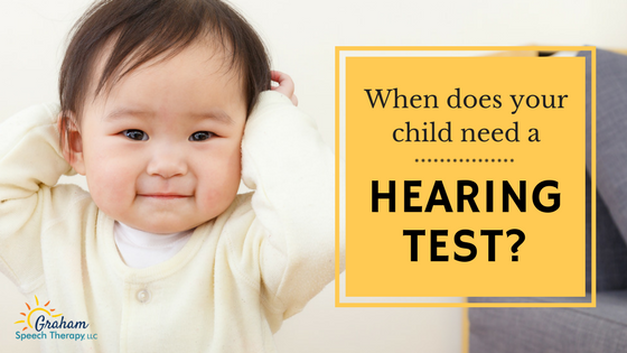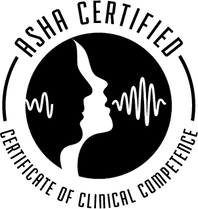|
Back when I was in graduate school, I worked for an Audiologist and conducted more than my fair share of hearing screenings. Not only did I really enjoy it, but I learned an awful lot about hearing loss. Did you know that hearing loss is one of the most common birth disorders in the United States? According to the National Institute on Deafness and Other Communication Disorders, 1 in 1000 infants is born totally deaf and an additional 1-6 per 1,000 are born with less severe, but significant, hearing loss.
Why is this important? In the first 3 years of life, a child's auditory pathways and language cortex are developing at a rapid pace. This neurological development happens in response to auditory (or visual) language. For families that are part of the deaf culture, parents begin signing from day one, so the baby is learning visual (sign) language. But, it is estimated that 96% of children with hearing loss are actually born to hearing parents. So, it follows to reason that these children are at much greater risk for delays in speech and language skills, especially if their hearing loss goes undetected. For example, even a child with a mild hearing loss may not hear "quiet" speech sounds such as /s/, /sh/, /f/, /t/ and /k/ and therefore would not include them in their speech. This can also affect their understanding and usage of vocabulary and grammar.... Think about how often these "quiet" sounds pop up in this sentence... "Seven cats sat on the fence shaking their tails". That's a lot of information missed if you aren't hearing those sounds. Newborn Hearing Screenings Thankfully, most babies born in hospitals in the U.S. are screened for hearing loss at birth using one of two tests:
Can babies pass a newborn hearing screening and still have hearing loss or develop hearing loss later? Yes! It's important to remember that no screening is perfect and babies with mild hearing loss may even pass newborn hearing screenings. So, being aware of the signs of hearing loss as your child grows is crucial. It's also possible that hearing loss may develop later on in a child's life for a variety of reasons, including chronic ear infections (acute otitis media), excessive earwax, congenital malformations, or a genetic hearing loss. Here are some signs of hearing loss to watch for in children:
If your child exhibits any of these symptoms, ask your pediatrician about a hearing screening. They can often be done quickly at your pediatrician's office, once a child enters school, or by an Audiologist by request or referral. Early detection is crucial. Very often, depending on the type of loss (which is a post for another day), hearing loss can actually be corrected. But, even with a permanent hearing loss, research indicates that children who begin services early may be able to develop language (spoken and/or signed) on a par with their hearing peers. So, don't delay if you suspect your child may have hearing loss! Click here or here to find an Audiologist near you.
4 Comments
1/14/2021 06:59:53 pm
You made a good point on how you should get your child's hearing tested if you notice that they're having a hard time listening to you as you talk. My friend is about to become a mother, and I want to help her raise her kid properly. I'll suggest that she reach out to a hearing test expert if ever this happens to her son.
Reply
8/25/2021 11:58:23 am
I didn't know that not reacting to loud sudden noises is a sign of hearing loss in children. We have noticed that my nephew doesn't react at all to dogs barking. I will suggest that my sister takes him for a hearing test.
Reply
9/29/2022 12:18:34 pm
My wife and I have been wondering when should we take our newborn to have her hearing tested. Thanks for mentioning that the sooner the better. I will definitely book an appointment to have my baby's hearing tested.
Reply
Leave a Reply. |
|



 RSS Feed
RSS Feed
